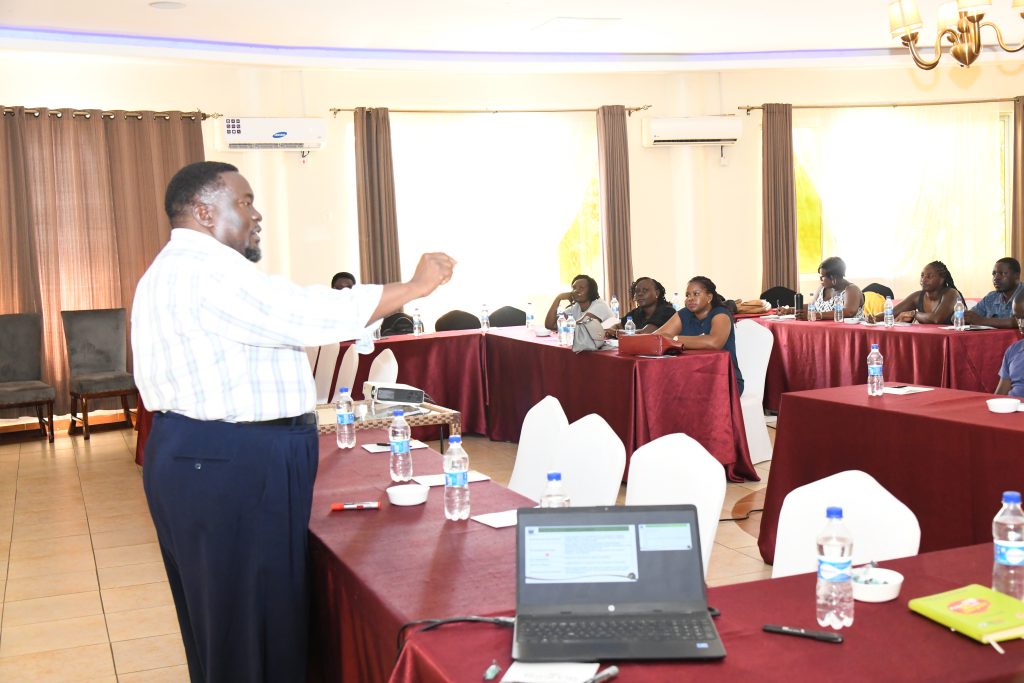Kisumu Leads the Charge in Tackling TB Stigma, Workplace Policies, and Community Empowerment

The fight against tuberculosis (TB) in Kisumu County took a significant step forward as stakeholders gathered for a two-day workshop aimed at creating awareness and building capacity around TB workplace policy, stigma reduction, and the Stop TB-Community, Rights, and Gender (CRG) framework.
To enhance TB care and control, representatives from high-TB-burden workplaces, healthcare providers, and county policymakers convened as part of this collaborative initiative. The effort is led by the National TB Program and supported by funding from the Catholic Medical Mission Board (CMMB) under the Global Fund HIV program and the Kenya Red Cross Society.
Many people shun healthcare services out of fear of prejudice, and the stigma associated with tuberculosis remains a significant obstacle to early identification and treatment. The workshop’s main goal is to give participants useful skills and approaches to deal with challenges in the TB care management cascade. This is in line with Kenya’s National Strategic Plan (NSP) 2023/24-2027/28, which calls for fair access to services related to TB, leprosy, and lung health.
“We need to make sure that stigma no longer prevents people from getting life-saving TB treatment,” stated Malika Timothy, Kisumu’s County TB Coordinator. “This workshop emphasises how crucial it is to create welcoming and encouraging environments in communities and workplaces in order to effectively combat tuberculosis.”
By putting communities at the centre of TB control, the Stop TB-CRG strategy guarantees that programs are inclusive, gender-sensitive, and rights-based. The Kisumu training concentrated on incorporating CRG principles into workplace regulations and more comprehensive TB care plans, especially in high-burden industries like informal settlements, transportation, and construction.
Important subjects covered included the value of community engagement, education, and workplace health initiatives in lowering stigma and fostering a supportive environment for those with tuberculosis.
The discussion of the TB Workplace Policy, which includes safeguards for staff members, such as access to screening, diagnosis, and treatment without fear of discrimination, was a noteworthy feature of the session. Additionally, it promotes aggressive case-finding efforts and flexible work schedules for TB patients.
“Workplaces are essential to efforts to control tuberculosis.” “We protect workers while improving TB outcomes by adopting and implementing these policies,” said Malika
The workshop covered innovations such as digital health platforms like TIBU and T-bu-lite for TB data management, community health volunteer engagement, and integration of TB care into workplace wellness initiatives. These measures aim to improve service delivery and foster accountability in both public and private sectors.
As a global leader in health systems strengthening, CMMB reaffirmed its commitment to advancing TB care in Kenya. Founded in 1912, the organization operates in over 44 countries, providing equitable healthcare solutions. Its vision of ensuring quality healthcare for all aligns seamlessly with Kenya’s TB elimination goals.
“Through the partnership with the Ministry of Health, Division of Tuberculosis and other Lung Diseases, we are addressing stigma and systemic gaps in TB care and ensuring that no one is left behind in the fight against this disease,” stated TessieJael Audoh, CMMB Program Assistant.
Immediate priorities include scaling up workplace screenings, strengthening referral networks, and launching awareness campaigns to challenge TB-related stigma. “This training is not the end; it’s a beginning,” emphasized Tessie. “We are building a future where every person with TB feels supported, workplaces prioritize health, and communities rally together to eliminate stigma and disease.”
With initiatives like this, Kisumu County continues to set an example in the fight against TB, highlighting the power of collaboration and community-driven solutions.









Workplaces, both formal and informal, are essential in controlling tuberculosis by offering opportunities for prevention, early detection, and treatment. Implementing workplace TB policies such as regular screenings, health education, and access to care—protects workers while reducing stigma and improving public health outcomes. Inclusive efforts targeting informal sectors, like mobile clinics and community-based interventions, ensure no one is left behind, empowering vulnerable populations and strengthening disease control. Expanding such initiatives fosters healthier, more productive communities, driving us closer to a TB-free future. #EndTB #WorkplaceHealth #LeaveNoOneBehind